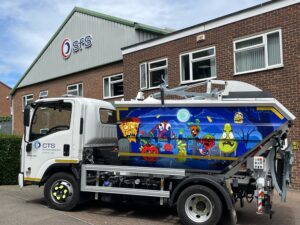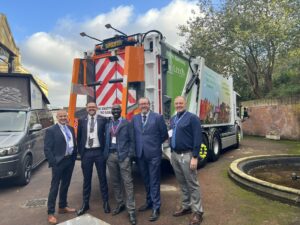
NRG Fleet Services saw a 30.55% reduction in accidents in 2019 compared to 2018, with 2020 on track for a further 42.85% reduction on 2019, writes Ian Woodfinden.
As of 20 June 2020, it was 688 days since our last RIDDOR.
RIDDOR stands for the Reporting of Injuries, Diseases and Dangerous Occurrences Regulations 2013. RIDDOR places duties on employers, the self-employed, and people in control of work premises (the Responsible Person) to report serious workplace accidents, occupational diseases, and specified dangerous occurrences (near misses).
As an organisation, NRG takes health and safety and the safety and welfare of our employees, contractors, and customers very seriously. This commitment starts at the top of the organisation and goes down to the shop floors and depots we operate.
Underlining our commitment to leadership in this area is the fact that, in May 2019, both Riverside Truck Rental (RTR) and Direct Tyre Management (DTM) achieved certification for the new ISO 45001:2018 Occupational Health and Safety Management System. In fact, we achieved accreditation to the new ISO standard just a year after its launch on 12 March 2018 and were the first in our sector to do so.
We have also achieved Safe Contractor and SSiP (Safety Schemes in Procurement) certification. So, what are the benefits of ISO 45001:2018? The first and most obvious benefit is the potential to improve employee safety and reduce workplace illnesses and injuries. However, it also gives businesses the chance to boost stakeholder confidence, increase productivity, lower insurance costs, reduce risks, and identify opportunities.
Crucially, the standard fosters management involvement and accountability and gives accredited businesses the opportunity to stand out as leaders in their industry by demonstrating the highest health and safety standards. Prior to achieving ISO 45001 accreditation, the business was certified to the BS (British Standard) Occupational Health and Safety System 18001:2007 rule. The journey from BS 18001:2007 to ISO 45001:2018 enabled us to identify the gap between where we were and where we needed to be. This process primarily provided a road map for us to follow to achieve accreditation.
We engaged with and trained our employees as part of the process to ensure they were on board and able to play their part in the journey. Ongoing communication is key. We communicate with all our staff in several ways, including our enhanced MyEQHS portal, workshops, monthly health and safety meetings, regular EQHS (Environment, Quality, Health, Safety) focus group meetings, and both classroom and online training courses.
We have found our online training programmes particularly useful, especially given the current Covid-19 lockdown, as a way to ensure continuous instruction is delivered to our employees.
We were externally audited in April and May 2020 and demonstrated 100% compliance to the standard, which is something we are very proud of.
The commitment demonstrated by our directors and all our employees to work in a safe environment and the continued development over the years of our safety culture, coupled with extensive planning, preparation, internal audit, management review and following up on the required actions has enabled us to achieve this success.
It was the result of a concerted effort on behalf of the company and all its employees. It has not happened by accident. Resources For more information: www.hse.gov.uk www.nebosh.org.uk




